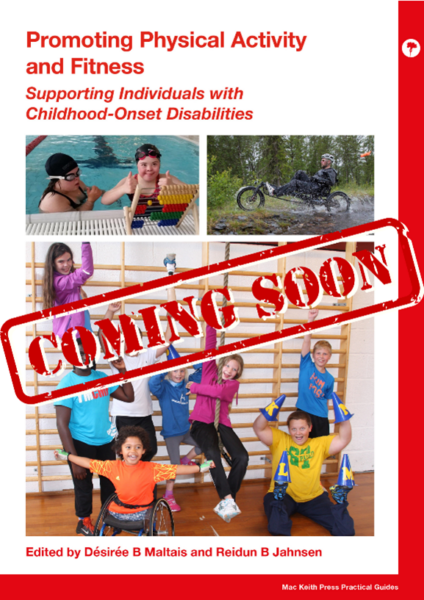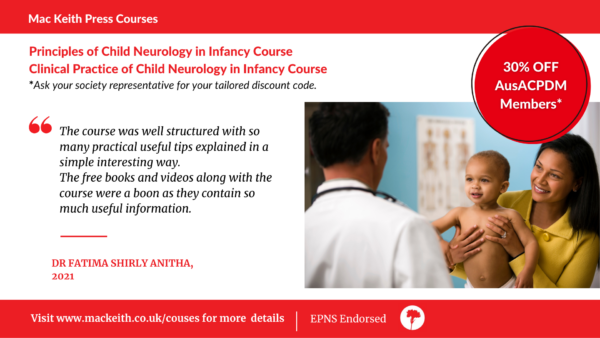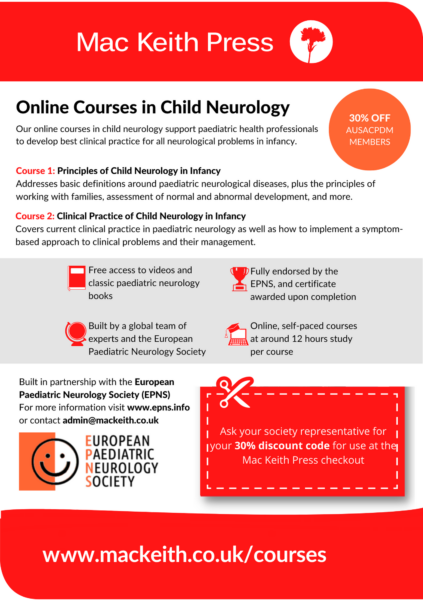
Updates from Developmental Medicine & Child Neurology – February 2023
New Book Due in March
We are delighted to announce a new book forthcoming next month, which is now available for PRE-ORDER!
 Exercise and physical activity in all forms are an important part of life, and can have lasting mental and physical health benefits. Promoting Physical Activity and Fitness provides critical insights in the field through clear and evidence-based information on how to evaluate, train, and foster physical activity and fitness in individuals with childhood-onset disabilities safely across the lifespan. Themes include physical fitness and activity assessment and training, safe engagement, measurement of activity levels and progress, responses to pain, and information relevant to specific diagnostic groups. Diverse, complex subjects are presented in an accessible and engaging way.
Exercise and physical activity in all forms are an important part of life, and can have lasting mental and physical health benefits. Promoting Physical Activity and Fitness provides critical insights in the field through clear and evidence-based information on how to evaluate, train, and foster physical activity and fitness in individuals with childhood-onset disabilities safely across the lifespan. Themes include physical fitness and activity assessment and training, safe engagement, measurement of activity levels and progress, responses to pain, and information relevant to specific diagnostic groups. Diverse, complex subjects are presented in an accessible and engaging way.
DMCN March Issue
An invited review that is part of a series on ethical issues explores whether therapy can be sensitive to neurodiversity, not aim for normalization, and understand disability as a potential source of community and pride. A systematic review of measurement properties tools to evaluate pain coping in children with neurodevelopmental disability highlights tools using self-report and parent proxy versions. Another systematic review and meta-analysis focuses on interventions to improve maternal mental health and parent–child relationship for mothers of young children with autism. A prospective cohort study of assessment tools for children born very preterm identified that the General Movements Assessment provides valid biomarkers to predict future neurological development. A large population-based cohort study following more than 300 000 children highlights preterm birth and some of its complications as clear risk factors for ADHD. A neuroimaging and neuropsychological study of early school-age children without cerebral palsy who underwent neonatal hypothermia for hypoxic-ischaemic encephalopathy found an increased risk of abnormal mammillary bodies associated with reduced cognitive outcomes. My Editor’s Choice is a longitudinal study of the development of hand function in children with unilateral spastic cerebral palsy spanning from 18 months to 18 years. A study of hand function and daily functioning of children with unilateral spastic cerebral palsy suggests a model to help design relevant intervention – the paper is also available in Portuguese. This is followed by a wearable technology documentation of physical activity in children with cerebral palsy, and then an analysis of the impact of telemedicine in child neurology during the COVID-19 pandemic. A cohort of patients with childhood-onset hereditary spastic paraplegia provides important lessons for genetic testing and counselling. A retrospective study suggests clinical clues for successful antiseizure medication withdrawal in children with drug-resistant epilepsy on a ketogenic diet. Finally, the finding of a strong correlation between relapsing-remitting seizures and focal cortical dysplasia can inform diagnosis, management, and pathophysiology


